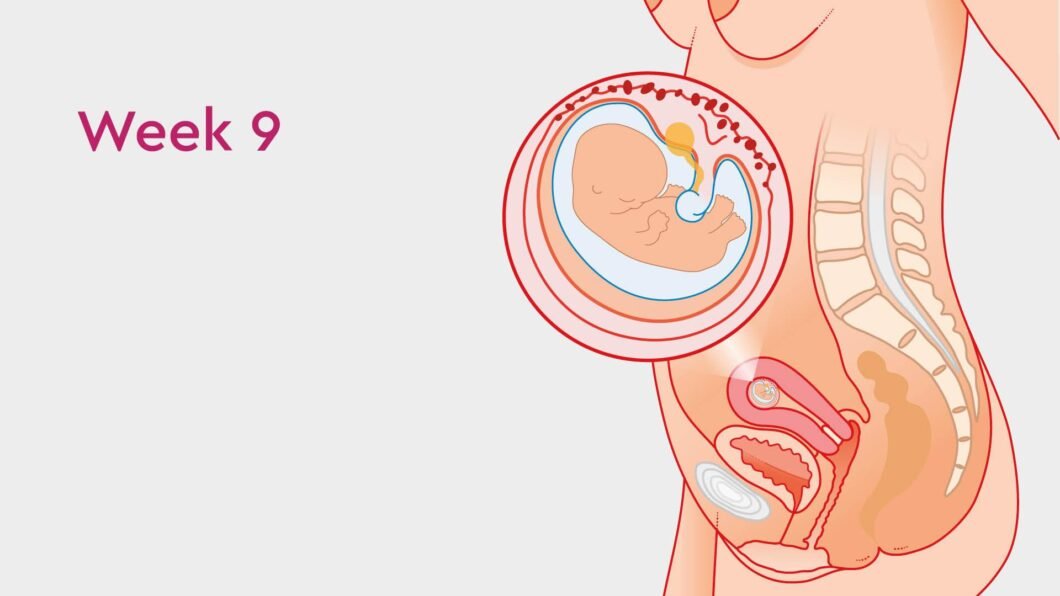During the 9th week of pregnancy, both the mother and the developing baby undergo significant changes:
For the Mother:

- Physical Changes: By the 9th week, the mother may notice further physical changes such as continued breast tenderness, fatigue, and nausea. Some women may also experience changes in their skin, such as acne or darkening of the nipples and areolas.
- Emotional Changes: Hormonal fluctuations can continue to impact the mother’s emotions during this time. Mood swings, anxiety, and feelings of excitement or apprehension about the pregnancy are common.
- Prenatal Care: Regular prenatal appointments remain important during the 9th week. The healthcare provider will continue to monitor the mother’s health and the baby’s development. This may include additional tests or screenings to assess the risk of genetic conditions or other complications.
For the Baby:

- Organ Development: By the 9th week, most of the baby’s major organs have formed, and they are beginning to function. The heart is beating rapidly, and other organs such as the liver, kidneys, and intestines are developing.
- Limb Growth: The baby’s limbs continue to grow and develop, and fingers and toes become more distinct. Movements may be more pronounced, although they are still too subtle to be felt by the mother.
- Facial Features: Facial features become more defined during the 9th week. The eyes, nose, and mouth are developing, and the baby’s face begins to look more human-like.
- Sexual Differentiation: By this stage, the baby’s genitals have formed, and sexual differentiation is well underway. However, it may still be too early to determine the baby’s sex through ultrasound imaging.
Overall, the 9th week of pregnancy is a period of continued growth and development for both the mother and the baby. It’s important for the mother to take care of her physical and emotional well-being and to attend all scheduled prenatal appointments to ensure a healthy pregnancy.
Visited 24 times, 1 visit(s) today

